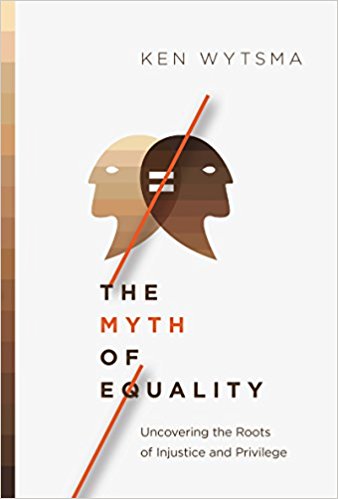 The Myth of Equality: Uncovering the Roots of Injustice and Privilege Ken Wytsma (IVP) regularly $18.00 ON SALE NOW 20% off our sale price $14.40
The Myth of Equality: Uncovering the Roots of Injustice and Privilege Ken Wytsma (IVP) regularly $18.00 ON SALE NOW 20% off our sale price $14.40
I would guess that you have followed with a heavy heart the reports about the verdict on the trial of the police officer that shot Philando Castile.
I’ve been frustrated by some of the ink spilled.
Some have written, not unreasonably, about how the system worked, saying we should trust the jury of peers, insisting we shouldn’t second guess our fellow citizens who listened, debated, and did their best to be fair and just with the evidence as they saw it. Others denounced the juror’s decision presuming that the jury was rigged, that the racial bias of even a few of the jurors rendered their judgments unreliable. (Add to that the evaluation of the outcome of the trial the critique — proper in my estimation — of how certain judges in these cases instruct the juries and how substantial, even legal, a priori support for police officers makes it difficult for juries to rigorously pursue justice the way they should in these kinds of cases.)
It seems to me that both “sides” make some reasonable observations and I am sad that there is increasing polarization in our discourse about race and criminal justice.
Anyway, you and I know that these are hard times, that we continue to talk — sometimes shouting, even — about race and racism, about racial profiling and mass incarceration, about race and class and gender, and often our discussions are not very well informed. Of course we are free in this country to have and share our personal opinions but part of our task, it seems to me, is to learn how to listen well, to be eager to learn something beyond our own opinions. We should listen widely, even as we tune out the ugly extremists, the idolatrous ideologies — three cheers for the recent public denunciation of the alt-right by the Southern Baptist Conference — and yet remain eager to consider those responsible voices with whom we disagree, staying at the table of conversation even when dialogue is hard.
WE MUST LEARN AND PROCLAIM GOD’S PERSPECTIVE
For Christians, however, about whom the apostle Paul says “we are not our own”, we are called to more than spouting our opinions. We must be well-informed, repentant of our own ungodly attitudes, intentionally cooperating with the on-going sanctification that God’s Spirit is working within us, being increasingly shaped by what is true, by the insights of Scripture, and by an unceasing determination to work wisely for public righteousness and social justice. That is, Christians aren’t called so much to speak their own mind and share their individual opinions in the public square, but to bear witness to, even if tentatively, God’s perspective, in tune with Christ’s goodness and beauty and grace. Which means we have to always be reminded of God’s view, especially on matters where our common discourse is so contentious. As we often say here at BookNotes, we have to “think Christianly.”
WE CAN DO THIS — EVEN BY PAYING ATTENTION TO WORSHIP
(Only a little off the track, here, but allow me this little aside: one of the books we’ve promoted the most this year is the lovely little set of reflections nicely called The Liturgy of the Ordinary: Sacred Practices in Everyday Life by Tish Harrison Warren (IVP; $16.00) because, in part, it shows how worship can spill over into ordinary life; we practice God’s presence and life in Christ-like power day by day because we’ve practiced it in ritual form in Sunday worship. After passing the peace, Sunday by Sunday, we learn to be peacemakers in the world. By hearing the 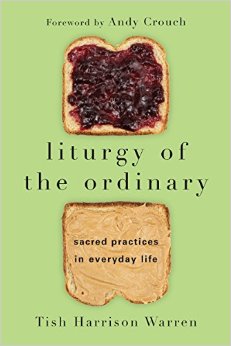 litanies and prayers around communion, we learn to welcome all to God’s table. My confessing our sins week by week we get in the habit of being those who are able to lament and own up to sin in and around us. By listening well to a sermon, you deepen your habit of being a life-long learner. You get the point: this wonderful book that reads like a memoir shows us how to translate worship theory and practice into ordinary living. At its best, good worship reminds us of God’s presence, announces Christ’s victory, and imagines the Kingdom coming, equipping us to serve well in the world. However – and here’s why I mention it – even in good churches with good rituals and healthy worship habits and solid preaching, I’m afraid we still don’t get around to hearing much about this stuff on most Sundays. We need all the help we can learning about and being responsible within our racially troubled times. Being formed in worship well we should want to learn more, to be better servants of Christ in the world, we should desire to be better at loving our neighbors. If you are worshiping well, and wanting to serve God with wisdom and vigor, you should want to buy some books and think this stuff through. Amen?)
litanies and prayers around communion, we learn to welcome all to God’s table. My confessing our sins week by week we get in the habit of being those who are able to lament and own up to sin in and around us. By listening well to a sermon, you deepen your habit of being a life-long learner. You get the point: this wonderful book that reads like a memoir shows us how to translate worship theory and practice into ordinary living. At its best, good worship reminds us of God’s presence, announces Christ’s victory, and imagines the Kingdom coming, equipping us to serve well in the world. However – and here’s why I mention it – even in good churches with good rituals and healthy worship habits and solid preaching, I’m afraid we still don’t get around to hearing much about this stuff on most Sundays. We need all the help we can learning about and being responsible within our racially troubled times. Being formed in worship well we should want to learn more, to be better servants of Christ in the world, we should desire to be better at loving our neighbors. If you are worshiping well, and wanting to serve God with wisdom and vigor, you should want to buy some books and think this stuff through. Amen?)
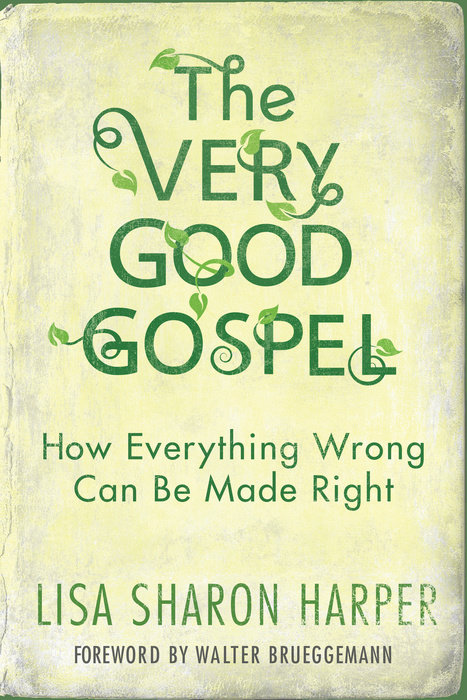 START HERE ALWAYS: THE GOSPEL IS VERY GOOD
START HERE ALWAYS: THE GOSPEL IS VERY GOOD
As I’ve said often here at BookNotes, Lisa Sharon Harper’s The Very Good Gospel: How Everything Wrong Can Be Made Right (Waterbrook; $19.99) is a book that points us towards what it looks like in many different sides of life where sin’s alienation and brokenness could yield to gospel-based reconciliation. There is a new creation coming and God’s beloved community is to be an example of and ambassadors for this creation-restoring shalom. There are other good handbooks that remind us of what God’s redemptive shalom might accomplish in the already-but-not-yet of this world, but I think Lisa’s voice as an evangelical, black woman brings extra insight about all manner of things and would be very, very helpful to read with your small group or reading group. Or alone, if you must. I’m glad to mention this book often, and look forward to hearing of folks using it.
THERE’S LOTS TO READ AND WE’D LOVE TO SERVE YOU FURTHER
You can find other good reads on lists that I’ve compiled about racial injustice and reconciliation HERE (which has some fairly recent titles) HERE or HERE (from the fall of 2015 where I first discussed Ta-Nehisi Coates Between the World and Me) or HERE, a big list, still great, from 2009. HERE I wrote about Jim Wallis’s important book, now in paperback, America’s Original Sin and even though the special offer mentioned is no longer in effect, the review is worth reading, and we stuff mentioned here in this review now at 20% off.
From the day we’ve opened we’ve stocked these kinds of resources and it would be our
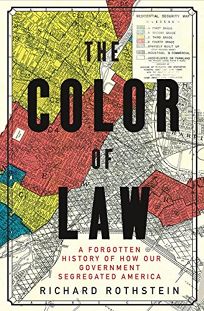 pleasure to serve you further in finding just the right couple of books on this topic. And good stuff keeps coming. Just a few weeks ago we got in a new book that further explores in scholarly detail how legal biases and institutional forces and even legal codes created segregation. It’s called The Color of Law: A Forgotten History of How Our Government Segregated America by Richard Rothstein (W.W. Norton; $27.95.) The eminent scholar William Julius Wilson says that “Rothstein has presented what I consider to be the
pleasure to serve you further in finding just the right couple of books on this topic. And good stuff keeps coming. Just a few weeks ago we got in a new book that further explores in scholarly detail how legal biases and institutional forces and even legal codes created segregation. It’s called The Color of Law: A Forgotten History of How Our Government Segregated America by Richard Rothstein (W.W. Norton; $27.95.) The eminent scholar William Julius Wilson says that “Rothstein has presented what I consider to be the
most forceful argument ever published on how federal, state, and local
governments gave rise to and reinforced neighborhood segregation.”
TWO EXAMPLES OF INSTITUTIONAL RACISM
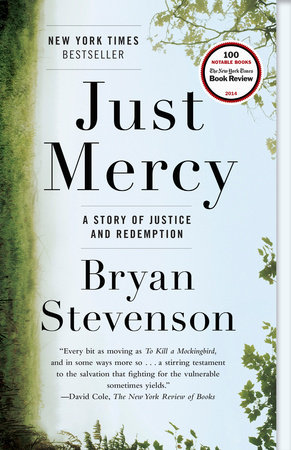 One of the most important and powerful books I’ve ever read, Just Mercy: A Story of Justice and Redemption, was reviewed HERE. We described it again when we awarded it one of our Hearts & Minds Best Books of the Year awards. It’s now out in paperback, by the way — now just $16.00. Over and over this valiant public servant fights cases of those wrongly incarcerated and wrongly convicted, often due to overtly racist (even illegal) accusations. It is a eye-opening story, even for those who follow the injustices about criminal justice.
One of the most important and powerful books I’ve ever read, Just Mercy: A Story of Justice and Redemption, was reviewed HERE. We described it again when we awarded it one of our Hearts & Minds Best Books of the Year awards. It’s now out in paperback, by the way — now just $16.00. Over and over this valiant public servant fights cases of those wrongly incarcerated and wrongly convicted, often due to overtly racist (even illegal) accusations. It is a eye-opening story, even for those who follow the injustices about criminal justice.
Michelle Alexander’s The New Jim Crow: Mass Incarceration in the Age of Colorblindness (The New Pres; $19.95) is certainly one of the most discussed books of our time, and it is highly recommended. It shows that in any state in this nation it is not uncommon for black people to get arrested for simple drug charges where white people committing the exact same crime in the exact same situation are not prosecuted and, worse, that black people are given much harsher penalties and sentences than whites who committed the exact same crime. There is simply no excuse not to know this, now.
For an alternative study, see Fordham University’s law prof John Pfaff’s Locked in: The True Causes of Mass Incarceration–And How to Achieve Real Reform (Basic Books; $27.99) which offers a critique of her analysis. And for a serious theological study, see Redeeming a Prison Society: A Liturgical and Sacramental Response to Mass Incarceration by Amy Levad (Fortress Press; $39.00.)
For those that don’t want this kind of deep dive into that kind of heavy social science research and policy reform, though, Bryan Stevenson’s wonderfully written memoir is a great glimpse into the world of judicial injustice and the ministry of poverty law, legal aid, and institutional racism within the criminal justice system, told vividly.
If you haven’t heard Bryan Stevenson speak, check out his TED talk, or this thrilling talk at Redeemer Presbyterian in New York a year ago. And kudos to our neighbors over at Messiah College who had him as their commencement speaker a few weeks ago.
CHURCHES ARE WORKING ON THIS
I am glad that some mostly white, typically conservative denominations are struggling with this. Just for instance, some conservative Calvinist leaders in the PCA last year released Heal Us, Emmanuel: A Call for Racial Reconciliation, Representation, and Unity in the Church edited by Doug Serven (Storied Communication; $18.99) and just recently a book came out called Removing the Stain of Racism in the Southern Baptist Convention: Diverse African American and White Perspectives (edited by Jarvis Williams and Kevin Jones, released by their denominational publisher, Broadman-Holman; $24.99.) The head of our own PC(USA) denomination recently asked Presbyterians to read Waking Up White and Finding Myself in the Story of Race (Elephant Room Press; $19.99), a very interesting and educational memoir by Debby Irving. Of course, we have them if you need them.
START HERE IF YOU NEED SOME BASIC BOOKS
I often recommend that those who aren’t familiar with this topic start with something approachable and Bible-based that have basic calls to racial reconciliation. It is our suggestion that you have a few of these around your fellowship or church as you never know when a serendipitous conversation might open a door to share something to help. Here are a few we most often suggest.
One: Unity in a Divided World Deidra Riggs (Baker Books) $14.99 Lovely, inspiring, honest but not overly hard hitting. About unity as a Biblical and spirital theme; not just racial unity, either. Nicely done by a very good African American writer — really useful and motivational for anyone.
Living in Color: Embracing God’s Passion for Ethnic Diversity by Randy Woodley (IVP) $18.00 My go to book about God’s desire for multi-cultural reconciliation. Exceptionally impressive.
Embrace: God’s Radical Shalom for a Divided World by Leroy Barber (IVP) $16.00 You should read anything Leroy Barber writes. He’s a strong and vocal preacher for justice, but this book is really inviting, showing for earnest care for all, working for shalom. Love it.
Reconciling All Things: A Christian Vision for Justice, Peace, and Healing by Emmanuel Katongole and Chris Rice. (IVP) $17.00 This is the first in a series of books about various sorts of reconcilation, commisioned by a center at Duke Divinity School. Wow, what a vision!
Divided By Faith: Evangelical Religion and the Problem of Race in America Michael Emerson & Christian Smith (Oxford University Press) $19.99 Social science research backing up Dr. King’s famous claim that 11:00 Sunday morning is the most segregated time in America. This focuses on evangelicals, particularly, but the data is vital, and the insights are valuable for all. One of the must-read books of our time.
Trouble I’ve Seen: Changing the Way the Church Views Racism Drew Hart (Herald Press) $16.99 Dr. Hart tells of his work with young adults in Harrisburg, Pennsylvania; he’s an old pal and a young leader I greatly admire. His PhD is from the Lutheran Seminary in Philadelphia and he now teaches at Messiah College. This is a powerful, vivid, testimony.
Roadmap to Reconciliation: Moving Communities Into Unity, Wholeness and Justice by Brenda Salter McNeil (IVP) $16.00 Brenda is a hero of ours, a lively preacher and effective evangelist who always brings together (as one of her earlier books put it) “soul change and social change.” This is a remarkably insightful book, brief, accessible, but full of her lifetime of study and activism.
SURELY ONE OF THE MOST IMPORTANT BOOKS OF THE YEAR
Today I want to tell you about one of the most important books I’ve come across in this area, a book that I’ve highlighted already, but feel as if I should tell you about it again. It is not scholarly or difficult and while we are such fans of the one’s listed above, this one should be bumped up to the top of your stack. You should consider it sooner rather than later.
 The Myth of Equality: Uncovering the Roots of Injustice and Privilege by Ken Wytsma (IVP; $18.00) is a book that you simply must read. It is meat enough to satisfy nearly anyone who wants to study up on this, and it is accessible for those who are eager, but don’t have all summer to wade through a major tome. Eugene Cho says it is “an important and timely book that helps us dig deeper on the journey of justice and reconciliation.” Yes, yes, that it is.
The Myth of Equality: Uncovering the Roots of Injustice and Privilege by Ken Wytsma (IVP; $18.00) is a book that you simply must read. It is meat enough to satisfy nearly anyone who wants to study up on this, and it is accessible for those who are eager, but don’t have all summer to wade through a major tome. Eugene Cho says it is “an important and timely book that helps us dig deeper on the journey of justice and reconciliation.” Yes, yes, that it is.
And, again, it is well done, sharp, honest.
It is a book about which Nicholas Wolterstorff says:
The Myth of Equality is written so skillfully that it’s easy to miss how much it accomplishes. The first part brings to light, with unflinching honesty, how deeply racism and white privilege are embedded within the founding documents and practices of the United States. The second part masterfully shows that this inequality violates the call of the gospel to justice and unity. And the third part offers some wise suggestions to those of us who are white Christians about how we can ‘lay down’ our white privilege. I have no doubt that some readers will be angered by the claim that they participate in and benefit from structures of racism and white privilege, well supported though that claim is. I predict that there will be more who are convinced and inspired by the patient, passionate, and non-defensive way in which Wytsma makes his case. It’s a book that someone had to write.
WHY ARE WE SO UPTIGHT ABOUT NAMING WHITE PRIVILEGE?
I am sure you’ve heard the phrase “white privilege” and I suppose you have some idea what it implies. But here’s the thing: even many of us who see ourselves as agents of God’s reconciliation, who are interested in the experiences of others – we celebrate diversity and seek out friends from other ethnic backgrounds and long for a multi-ethnic church and get fired up when we read about the injustices described in Just Mercy — we still don’t quite have a solid handle on how to talk about white privilege.
This is one of the more interesting blurbs I’ve read on the book – and nearly anyone I admire in this field has weighed in, affirming Wytsma’s good efforts – but please read what Scot McKnight says:
White progressives, evangelical and not, seem to enjoy feeling bad about racial injustice and wagging self-righteous fingers at others, but they often exacerbate the injustices of racism by hardening the lines of defense. Far too often the only solutions proposed are more laws, tightening existing laws, and social engineering through public education. What we need are not resolutions but solutions ? solutions emerging from real people in real settings, with leaders who have discovered the long, painful path that leads from white privilege and white invisibility to social integration, racial reconciliation, and churches abounding in fellowship across racial lines and celebrating the glories of ethnicities. Ken Wytsma is the kind of leader who offers real solutions toward social integration and racial reconciliation, and he comes from that kind of community and church. The Myth of Equality is a genuine contribution for those of us looking for ways forward.
I certainly agree with McKnight’s nice affirmation of Wytsma’s good hope for solutions. But I suspect that some will denounce him for “hardening the lines of defense” for making things worse by talking about white privilege so overtly.
Why do so many folks get upset when we introduce this notion into our conversations? Why do many well-meaning and otherwise socially astute white evangelicals have a huge blind spot here? Is this a fruitful line of discourse to pursue or does it just accentuate our differences, perhaps even fueling what some call “reverse racism.” (And is that even a thing, and if not, why not?) Is Jim Wallis right to call racism “America’s original sin” in the book by that name?
I cannot say in a short review the many reasons you should have a copy of The Myth of Equality: Uncovering the Roots of Injustice and Privilege and the many good things that Wytsma brings to us in this clear, relatively brief book. (It is a trim size and, excluding the many footnotes, is under 200 pages.)
FOUR REASONS TO READ THE MYTH OF EQUALITY
Allow me to suggest four things about it I really appreciate.
GREAT BIBLICAL STUDY AND ROBUST KINGDOM PERSPECTIVE
Firstly, it provides great Bible teaching about justice and injustice, racial diversity and Christ-centered reconciliation. The book is written in three parts and the second part – four solid chapters under the heading “Equality and the Kingdom of God” — does fabulous, big picture Kingdom teaching, naming some fairly-well known Scriptures about justice but also some fresh evaluations of why we too often miss the import of these texts. Yes, he critiques Western individualism and a pie-in-the-sky view of heaven (and the subsequent “Salvation Industrial Complex”) and goes further in helping us realize a deeper, richer account of the Biblical story, the cross, the Kingdom, and more.
Wytsma is really good on this; in fact, in the introduction he summarizes:
The central thesis of this book is that a misunderstanding of the gospel leads to a false dichotomy: we prioritize the spiritual and personal aspects of faith and devalue or nullify the material and communal dimensions that bind us to God’s creation and to our brothers and sisters made in the image of God. This twisting of faith has resulted in historic injustices that have terrorized and handicapped generations of minorities.
I really appreciate this wholistic, truly Biblical approach. I loved his summary of Walter Brueggemann’s The Prophetic Imagination and how he puts that in conversation with Surprised by Hope by N.T. Wright making for a wonderful and helpful chapter. This is the sort of telling of the gospel we all need under our belts and although Wytsma has a fuller book on this (Pursuing Justice) this middle section of The Myth of Equality gives us a very useful theological framework for talking about justice and, yes, white privilege as it has developed in our culture.
TELLING THE HISTORY, EXPLAINING THE FORMATION OF RACIAL ATTITUDES
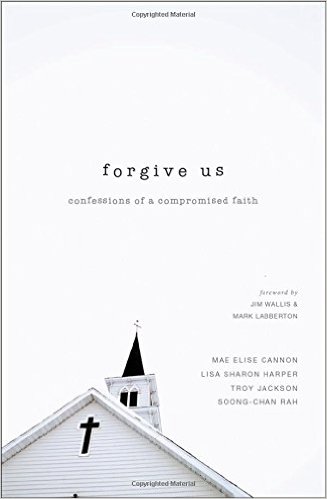 Secondly, the value of this book is exceptional in how it highlights the history of white privilege. I know I have raved about and nearly begged our BookNotes readers to purchase and study and pray about and discuss Forgive Us: Confessions of a Compromised Faith co-authored by Elise Mae Cannon, Soong-Chan Rah, Lisa Sharon Harper, and Troy Jackson (Zondervan; $22.99) about the vile history of injustices committed in the name of Jesus upon native peoples, immigrants, blacks, women, LGTBQ folks, the land itself…. I know this is heavy and offers the weight of hard history, so I appreciate that some simply don’t have the capacity to study all that. Even though I have a pretty breathy endorsement blurb on the inside. But it’s a lot, I know.
Secondly, the value of this book is exceptional in how it highlights the history of white privilege. I know I have raved about and nearly begged our BookNotes readers to purchase and study and pray about and discuss Forgive Us: Confessions of a Compromised Faith co-authored by Elise Mae Cannon, Soong-Chan Rah, Lisa Sharon Harper, and Troy Jackson (Zondervan; $22.99) about the vile history of injustices committed in the name of Jesus upon native peoples, immigrants, blacks, women, LGTBQ folks, the land itself…. I know this is heavy and offers the weight of hard history, so I appreciate that some simply don’t have the capacity to study all that. Even though I have a pretty breathy endorsement blurb on the inside. But it’s a lot, I know.
Enter Mr. Ken Wytsma.
 In a few short chapters of Myth of Equality one gets a bit about the history of how white people in the new world crafted worldviewish social imaginaries and tendencies and attitudes that placed themselves over and above others. He explains how in our society “we are deeply shaped by racial categories, yet we who are white remain mostly blind to how the undercurrent of racialized thinking affects our life as a nation and our own actions.”
In a few short chapters of Myth of Equality one gets a bit about the history of how white people in the new world crafted worldviewish social imaginaries and tendencies and attitudes that placed themselves over and above others. He explains how in our society “we are deeply shaped by racial categories, yet we who are white remain mostly blind to how the undercurrent of racialized thinking affects our life as a nation and our own actions.”
He has a few great pages about how race was construed in late middle ages Europe and he ponders how black protagonists in Shakespeare (think, Othello) did or didn’t capture assumptions about skin color in that time and place. Even if it weren’t so painfully urgent, his overview of “color in the Western tradition” is utterly fascinating. When did racism as we know it now begin? How did it become such a feature of our Western imagination? I suspect there is more to the story than he tells, but it’s more than enough to help us realize how things like this are socially constructed and capture our imaginations over time.
You may have heard of the utterly corrupt “Doctrine of Discovery” and you’ve heard a bit, I hope, about the injustices woven into biased immigration policies in the 1800s. (I learned about the biases against Asians in the history of immigration law when we became engrossed in advocacy for a large group of asylum-seeking Chinese from the Golden Venture ship who were imprisoned in our local jail for nearly a decade — see Patrick Radden Keefe’s epic book The Snakehead: An Epic Tale of the Chinatown Underworld and the American Dream and one of my old columns about it, HERE.) Mr. Wytsma not only exposes these harmful policies that had huge implications for our nation’s handling of racial diversity and the so-called “melting pot” but also shows a bit about how bad attitudes and biases encoded into laws and policies a century or more ago still ripple down into our own current malaise.
Naturally, he also does this historical study regarding slavery and the legacy of reconstruction and how the Jim Crow segregation stuff shaped generations of African-Americans. He cites Isabel Wilkerson’s Pulitzer Prize winning (if mammoth – it’s still on my own waiting list) The Warmth of Other Suns to explore the social realities of the great migration north in the 20th century. How urban blacks are perceived to this day is complicated and I think a more thorough study would have to look at the role of pop culture and hip-hop and the rise of thug fashion and gang culture to understand how our mental pictures have been developed. Read, at least, Daniel White Hodge’s The Soul of Hip Hop: Rims, Timbs and a Cultural Theology for a positive take on the theologies within that cultural movement.)
Wytsma quotes the heartbreaking results of the Clark “doll tests” and explains some of the other tragic attitudes about blackness that swell around our culture. You may have read some of this in Christina Cleveland’s important Disunity in Christ: Uncovering the Hidden Forces That Keep Us Apart, a book you’ll want to have as a follow-up to some of this almost unbelievable bias that is commonly documented.) How Wytsma gets at this historical stuff in the relative brevity of this first third of The Myth of Equality is its great strength – with such an astute study from such a thoughtful, clear-speaking teacher. We all need to know this historical perspective and I suspect that even those who have read more massive studies of the nature of white privilege will learn something new about the concept and about the unfortunate history of these realities in our land. I can say with confidence that the vital content presented here is offered with the right balance of research and clarity that you can hardly find anywhere else.
Besides the early Western formation of racial biases, the unsavory history of European colonization, important immigration policies, the impact of the slave trade, stolen labor, injustice during the reconstruction years, the terror of lynchings, the KKK and such, there was the ongoing discrimination in the North shaping the attitudes of those in the middle of the 20th century. This is all really, really important to know; Wytsma explains how that shaped the rise of our US identity and the usually un-examined worldview of the dominant culture. Next, he has a brilliant overview of how our cities developed. There are a few little charts and maps that explain demographic shifts, the value of homes in the North, and a concise and essential explanation of redlining. Again, less than thrilling facts about home ownership and loans and economic transfer and school policies all end up being key markers in a devastatingly real landscape and key aspects of a truly passionate story.
By way of this overview, the construction of race and its impact on us all is explored concisely and honestly and I truly commend these first few chapters. If you don’t know at least this material, I’d say you are not equipped to enter into conversations about race relations these days. If you’ve studied some of this before, consider this a positive and profitable review.
STORIES, ANECDOTES, EXAMPLES MAKE FOR A GOOD READ
A third and very important reason The Myth… is that it is fully of really helpful stories. Ken starts the book with a conversation he had with a white wannabe urban church planter that, frankly, demoralized me so much I smacked my book shut; can folks really be so unaware of how they sound when speaking about race and being so tone-deaf to how people of color have experienced discriminatory things (often!) that white people rarely, if ever, have. Mr. Wytsma is often charming and always levelheaded, but he was stern in his response to a couple of conversation partners. For instance, he is blunt and concise in insisting that a white person who took offense after being told that they cannot fully understand what some blacks have gone through, awkward or even painful as such a claim may feel, is simply not the same as racism or being harmed by discrimination. White people must let go of misguided notions such as that being accused of insensitivity are equivalent – in terms of injury or anguish – to the stuff most people of color have gone through. It just isn’t.
And so with anecdotes and stories we are off to the races, as they say, deep into the harder questions of white privilege and implicit bias and institutional racism before we’ve even gotten past the riveting introduction. The stories that are told here are illuminating and always bring the theoretical analysis down to earth; this is real-world stuff, and I suspect that our typical BookNotes readers will recognize these kinds of conversations, as you’ve had them in your own families, Bible studies, campus ministries, and church groups. We’ve had these conversations in our own settings, in the bookstore, on the road. The illustrations and examples and case studies and episodes described in The Myth of Equality: Uncovering the Roots… are helpful and informative, even as they ring true. When he explains some recent research or tells about other bits of other books – like Brent Staples telling about his strategy of setting white people at ease in Claude Steele’s Whistling Vivaldi: How Stereotypes Affect Us and What We Can Do — you are given tools to think about this, stories to tell, ways to help others understand. His work on the formation of identity is just really clear, really helpful, and the stories he tells make it come alive. Whether you agree or not with every formulation and interpret every episode as he does or not, this book models a candid discussion about all this, and it presents some basic teachings that we ought to be grappling with.
WHAT TO DO, HOW TO RESPOND?
Fourthly, besides this book being both candidly forthright and instructional about the construal of race and the history of racial injustice and besides it being loaded with stories and interesting examples, it explores powerfully what to do about this situation of white privilege. Once we are more deeply aware of implicit biases and the privileged experiences of some of us in our world layered with unfair advantages and institutional injustices as it is, how to we move forward?
Theologian Scot McKnight says “Ken Wystma is the sort of leader who offers real solutions toward social integration and racial reconciliation.” Part of the solution is to own up to so much of this. To get woke up, as they say these days.
Wytsma in a few devastating paragraphs parses some recent Barna research about evangelical Christians. Despite the good work evangelical publishers have done on reader-friendly, Biblically-based books about reconciliation, white Protestants with historic, orthodox views of the Bible and Christian faith have a lower than typical view of the question of how people of color experience racism in our culture, so much so that one researcher studying these statistics says “More than any other segment of the population, white evangelical Christians demonstrate a blindness to the struggle of their African American brothers and sisters.” This does not bode well, of course, for the church’s ongoing witness in this arena.
Yet, curiously, white evangelicals have a higher than average view that racial reconciliation is important and that the church has something helpful to offer which is fascinating.
Combining these bits of data, Wytsma writes:
Taken together, these findings reveal that those who believe they are most equipped to help with reconciliation actually don’t think it is needed as much as other American’s do.
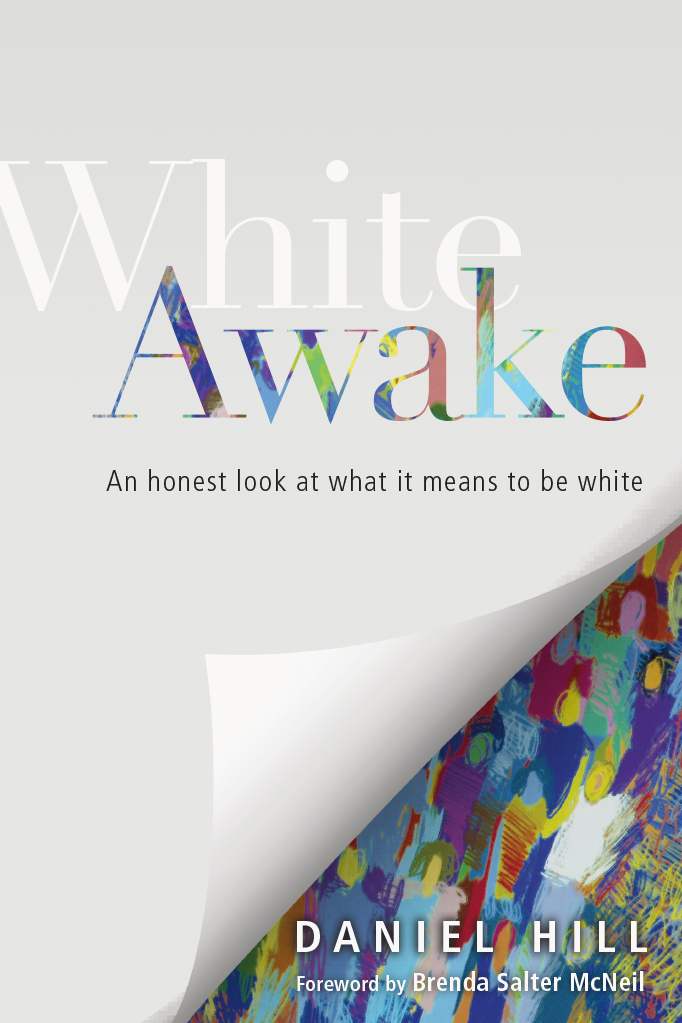 Wow.
Wow.
This is one of the big reasons this book is so very needed right now.
We can be glad that IVP asked Ken to write this and that they will continue to release helpful resources for this conversation. (I do not know of any other religious publisher that is so dedicated to releasing books on this topic.) See, for instance, coming this August (2017) a much-anticipated book White Awake: An Honest Look at What It Means To Be White by Daniel Hill (IVP; $16.00.) You can, of course, PRE-ORDER that now from us. Just tell us at the order form page what you want and we’ll send it to you at the discounted price as soon as it releases.
PRACTICAL IDEAS
Helping us to own up to our situation in the spirit of humility and willingness to learn is just the beginning of the practical stuff Wytsma’s book offers.
Part Three offers three chapters under the title “The Challenge of Privilege” and helps us, again, firstly understand. There is a chapter that offers us a phrase well worth pondering: “When Racism Went Underground.” The subtitle of this chapter may be disconcerting, and some may even find it unfair – “Implicit Racial Bias and the Stories That Hide Within Us.”
Do stories “hide within us”? Of course they do – that has been one of the great insights of the movement promoting “worldview” thinking and Christian discernment in cultural analysis. Many of us have been taught to read “between the lines” to see what presuppositions and values are lurking behind the ads and TV shows and professors textbooks, calibrating our hearts and minds in certain ways; we’ve realized that no news report or scientific claim or artwork is religiously neutral, that all of life is value-laden, conscripting us (as James K.A. Smith puts it in You Are What You Love) to a particular vision of the good life and a certain sort of way of being in the world. One needn’t be a postmodernist or Freudian to understand how this works: we are people who see through a glass darkly, and our views and attitudes and assumptions and even our overt convictions are always formed in a mix of conscious and subconscious worldviews and social imaginaries, stories and myths and habits of heart that make us who we are. Do we have assumptions and stereotypes and biases and prejudices (racial and otherwise) swirling just below the surface of our hearts?
Anyway, Wytsma doesn’t overdo this, but he explores how we ended up here, what it might mean for those of us committed to justice, and how we can – yes — “find ourselves in the other.” Oh my, what a great closing chapter that is both inspiring and insightful, but useful in committing to taking next steps of unraveling these assumptions and attitudes of inequality and the social architecture and cultural structures that keep them in place. He lists four specific things that are common sense and faith-based. Laying privilege down may be harder than it seems and I wish he’d have written just a bit more about it.
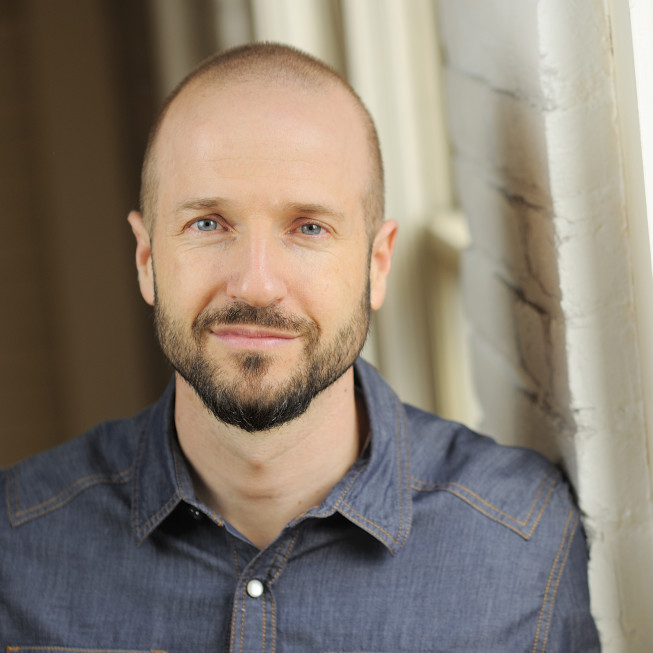
One of the strengths of this book is that it doesn’t pretend to be the authoritative voice or the only take or the final answer. It is forthright and informed and it is evident that Wytsma is working hard at this, alongside colleagues and friends of color, so it carries some authority, I’d say. Yet, he repeatedly reminds us that he’s just speaking from his heart, saying what we thinks is helpful, what he’s learned thus far.
Early on he sounds this out clearly:
I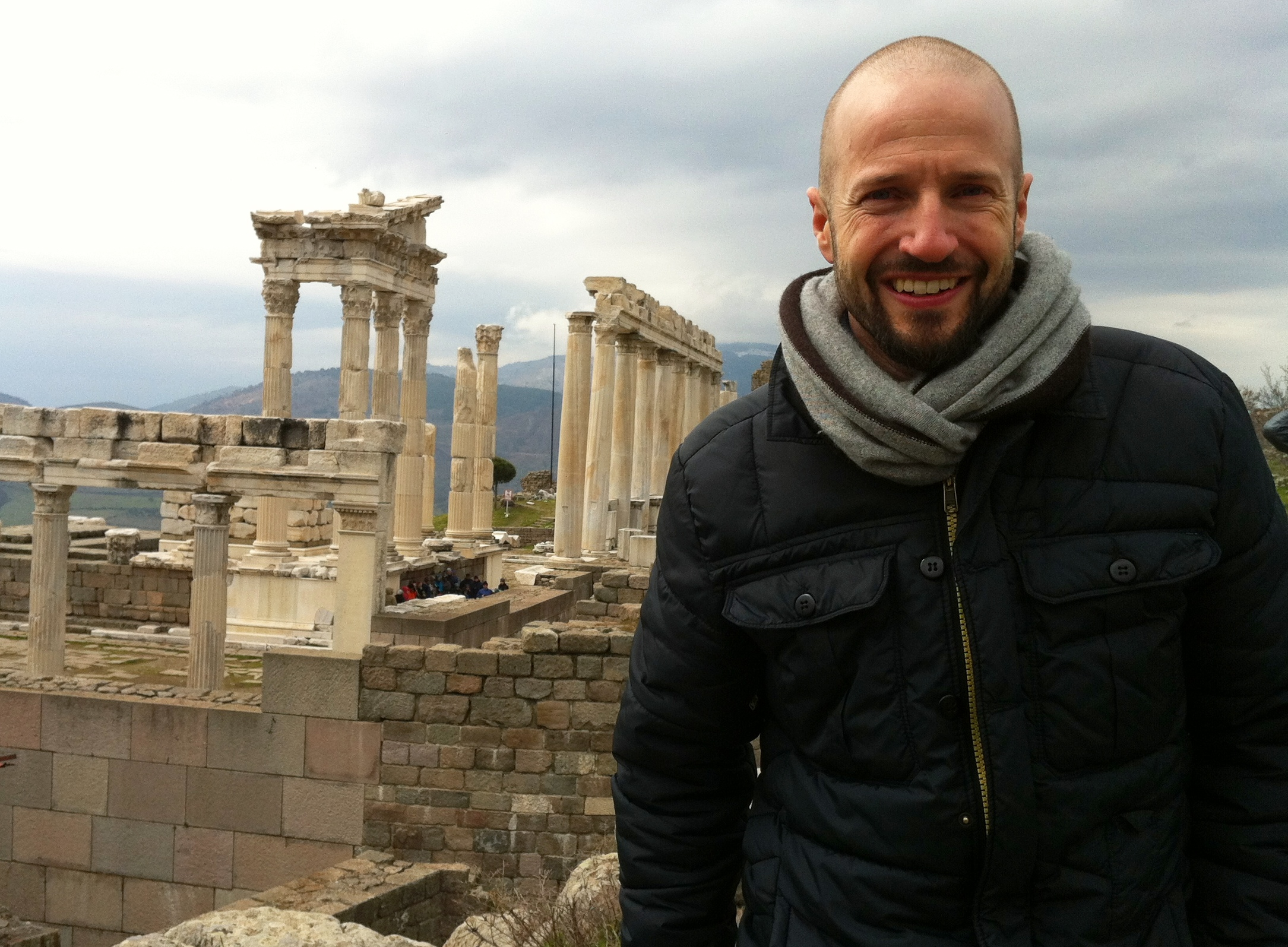 am not attempting to be the authoritative voice on race in America, and I can only really speak from a perspective of privilege and my experience. I am simply addressing a topic to which Scripture speaks clearly, a reality that in many ways has helped to shape my story. Indeed it has played a significant role in shaping the stories of all Americans, whether we know it or not. Speaking only to safe topics, where agreement comes easily, can’t be the chief goal of faithful witness. It wasn’t for Jesus.
am not attempting to be the authoritative voice on race in America, and I can only really speak from a perspective of privilege and my experience. I am simply addressing a topic to which Scripture speaks clearly, a reality that in many ways has helped to shape my story. Indeed it has played a significant role in shaping the stories of all Americans, whether we know it or not. Speaking only to safe topics, where agreement comes easily, can’t be the chief goal of faithful witness. It wasn’t for Jesus.
Indeed, the Bible calls us into honest and just conversations, to “speak the truth in love.” Which sort of leads us to my opening paragraph, noting the varying responses to the lack of conviction in the acquittal in the Philando Castile shooting. The title of the first part of Wytsma’s short “Conclusion” chapter is called “On Loving the Police and Believing Black Lives Matters.” He talks how hard it has been for him as a pastor balancing an outspoken denunciation of police brutality and creating a culture within in his church that honors those in law enforcement; Pastor Wytsma describes sitting down with some police officers in his congregation, and this, again, reminds us how beautiful it can be when we move into these hard conversations rather than avoiding such awkwardness. This book will help you understand our culture and our torn social fabric and the realities of inequality and privilege, but it will also help your church be a more faithful Body. It will help you lean to talk together well.
After telling a remarkably moving story about a Palestinian mother and Jewish woman talking, Ken reminds us of the beauty of sharing bread. Hospitality, after all, is about welcoming the other. “When we are in a posture of hospitality,” he concludes, “we can’t objectify those with whom we disagree. We can’t throw stones while serving bread. ”

BookNotes
DISCOUNT
ANY ITEM MENTIONED
20% off
order here
takes you to the secure Hearts & Minds order form page
just tell us what you want
inquire here
if you have questions or need more information
just ask us what you want to know
Hearts & Minds 234 East Main Street Dallastown, PA 17313
read@heartsandmindsbooks.com
717-246-3333
